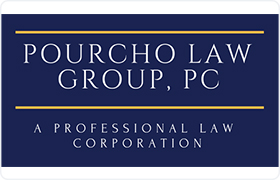 Fountain Valley Collection Lawyers, California
Fountain Valley Collection Lawyers, California
Sponsored Law Firm
-
 x
x

Click For More Info:
-
Pourcho Law Group, PC
2618 San Miguel Dr Suite 410 Newport Beach, CA 92660» view mapCollection Law Results Driven Legal Assistance
Ben Pourcho and the legal support team at the Pourcho Law Group, PC have a proven track record of providing the highest quality of legal representation to our clients.
800-936-1321
Lawyers
1-3 of 3 matches
Credit & Debt, Collection, Bankruptcy & Debt, Lawsuit & Dispute
Collection, Administrative Law, Corporate, Dispute Resolution, Credit & Debt
Collection, Civil Rights, Commercial Real Estate, Credit & Debt



 Ben Pourcho Newport Beach, CA
Ben Pourcho Newport Beach, CA Practice AreasExpertise
Practice AreasExpertise